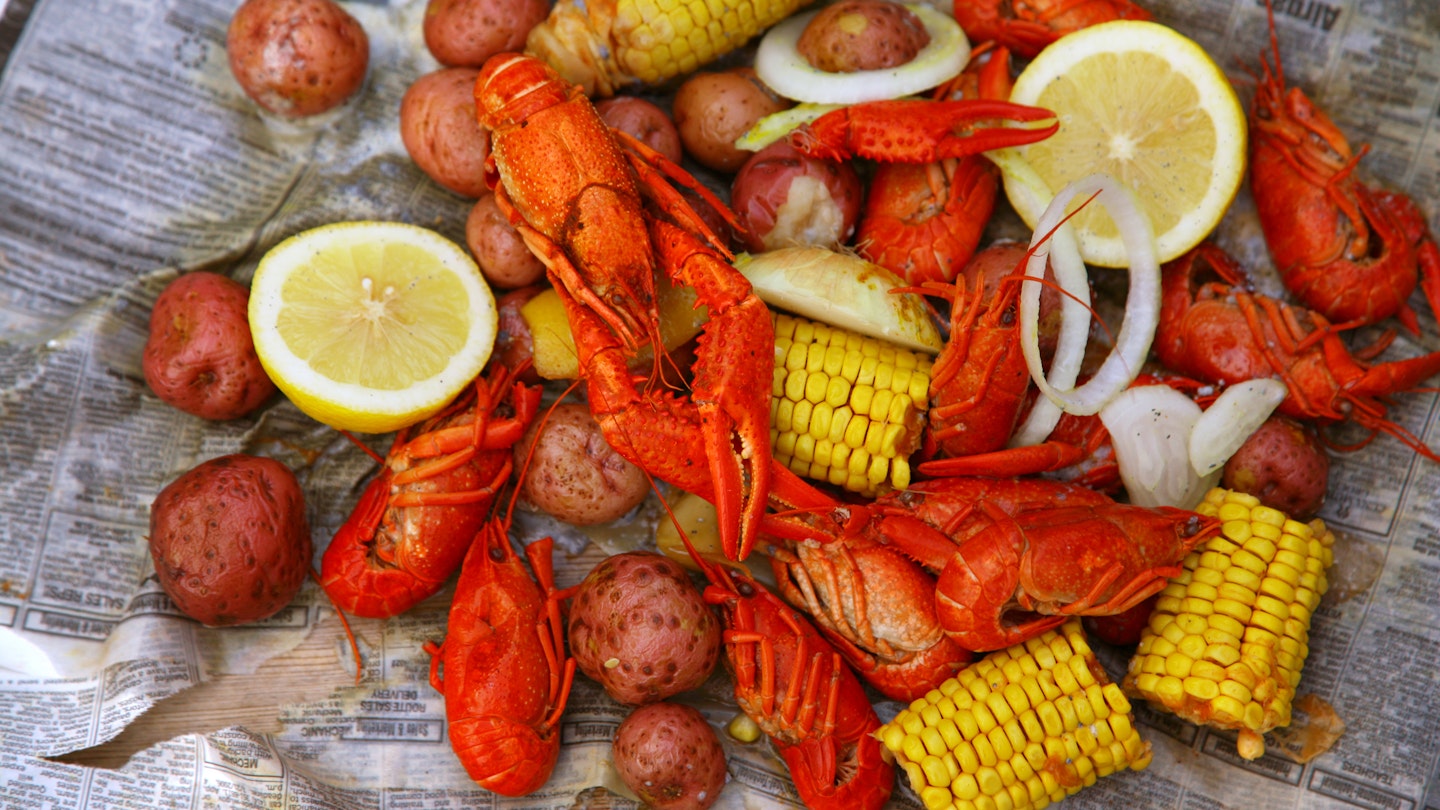Explore Louisiana’s Culinary Treasures
Every state in the US is proud of its homegrown cuisine, but not every state can back their bragging with real evidence of culinary prowess. Louisiana can. The food culture here is iconic, with a cuisine that stands out across America. Since the 1980s, the world has become obsessed with Cajun culture, largely due to the influence of famous chefs like Paul Prudhomme and his successors such as Emeril Lagasse and Donald Link.
The Bayou State is a product of multiple cultural threads, including the African diaspora, Native Americans, French-Iberian Creoles, Acadians (Cajuns), and waves of settlers from Ireland, Germany, Vietnam, and Honduras. This rich mixture has developed a culture that elevates both the enjoyment of food and the indigenous products of Louisiana’s unique landscape, from its prairies to its bayous to the Gulf of Mexico.
Now that you’ve chewed on that, let’s dig in.
The Ground Rules
When eating your way across the state, it’s important to note that Cajun and Creole are not interchangeable terms. The Cajuns are the descendants of Acadians (French Canadians) who settled in Louisiana’s prairies and bayous. Cajun cuisine tends to be more rustic and arguably less complex than Creole cuisine, which has its roots in the French-Iberian demographic that settled in New Orleans. While both cuisines celebrate rich flavors, colorful presentations, and generous helpings of butter and fresh seafood, understanding their distinctions adds richness to the dining experience.
You may also be wondering, what is roux? Roux (pronounced roo) isn’t a dish per se; it’s a simple base of flour and oil or butter, stirred until it reaches the desired color. It serves as the foundation for many beloved local dishes and is often available in jars at local convenience stores.
Crawfish
The humble crawfish is served a million ways across Louisiana: in pies, as étouffée, over French fries—the list goes on. However, there’s one preparation you cannot miss. A Louisiana crawfish boil is a special occasion, bringing together friends and family over good music, beer, and, of course, tables laden with fresh-boiled crawfish. While backyard boils are the best, you’ll also find delicious crawfish in Breaux Bridge, known as the crawfish capital of the world, especially during its annual crawfish festival in May.
Outside of New Orleans in the town of Gretna, you’ll discover an exciting evolution in Louisiana cooking: Vietnamese-style crawfish. These shellfish are sometimes referred to as ‘Cali style’ crawfish, an indication of their unique preparation that blends Vietnamese flavors with a classic Cajun boil. The result is both mouthwatering and messy—perfect for adventurous eaters. Visit Big EZ Seafood to enjoy this culinary delight.
Boudin
‘Boudin’ (boo-dan, not boo-din) is a French sausage, though variations exist throughout the Francophone world. Louisiana’s boudin is uniquely its own. This delightful mix of meat, rice, and herbs is a culinary creation influenced by German immigrants, Acadian settlers, and enslaved Africans. It’s rich, flavorful, and smoky, with rice providing a delicate texture. Simply put: boudin is a must-try.
While you can find boudin in restaurants, the true treasures are located in grocery stores and gas stations across the state. Popular spots for authentic boudin include Billy’s Boudin & Cracklins in Opelousas, the nearby Best Stop Supermarket, and B&O Kitchen & Grocery near Lake Charles.
Gumbo
Arguably, no dish represents Louisiana quite like gumbo. This iconic one-pot wonder comes with a multitude of variations. Typically served over rice, gumbo includes roux and filé powder (dried sassafras), which serves as a thickening agent. The ingredients vary widely, with meat and sausage dominating in the prairies while seafood is the star on the coast. The diverse components of gumbo reflect the state’s rich demographics.
In New Orleans, try Herbsaint for a smoky, rich interpretation, or venture into Cajun country for a darker, richer gumbo at Charley G’s in Lafayette. For a consistently high-quality seafood gumbo, check out Cajun Seafood, a popular chain in New Orleans. And if you’re in New Iberia, don’t miss the seafood gumbo at Cafe Jefferson, swimming with crawfish, crab meat, and shrimp—add some Tabasco hot sauce for an extra kick.
Étouffée
Étouffée (eh-too-fay) takes its name from the French word meaning “to smother.” This dish involves shellfish (either shrimp or crawfish) cooked in a luxurious buttery sauce made from roux and served over fluffy rice—a dish that truly feels like a feast.
In North Louisiana, where the Cajun heartland feels distant, Crawdaddy’s Kitchen serves a notoriously delectable étouffée, while Buffa’s offers a bargain version made with alligator, accompanied by lively New Orleans music in the evenings.
Jambalaya
Jambalaya is another beloved one-pot rice dish that symbolizes the culinary landscape of Louisiana. A good jambalaya features the “holy trinity”—green bell peppers, onions, and celery—along with spices, smoked sausage, and whatever vegetables happen to be at hand.
The preparation requires slow cooking, allowing the rice and stock to harmonize with the other ingredients. When the rice is added can signal whether it’s Cajun or Creole in style. Creoles may include tomatoes in their “red jambalaya,” while Cajuns use the bits that burn along the pot’s bottom to enhance the flavor.
In New Orleans, visit Coop’s Place for excellent rabbit jambalaya with a Cajun twist. In Baton Rouge, dine at Rice & Roux, where the robust flavors of Cajun cuisine shine amidst a modest atmosphere.
Po’boys
Legend has it the po’boy originated as a meal for striking streetcar workers, symbolizing solidarity. It’s far more than a mere sandwich: the po’boy elevates typical sandwich fare through its unique bread—a perfect balance of firmness and yield—and its rich fillings, which frequently include slow-cooked roast beef, gravy-laden “debris,” and fried seafood.
In the Gulf South, excellent po’boys are plentiful. In Lafayette, French Press serves a boudin ball po’boy that’s sure to impress. In New Orleans, stop by the humble Rampart Food Store for a shrimp po’boy that is simply exquisite. If you’re traveling through South Louisiana, fill up at Danny & Clyde’s, famous for its overstuffed po’boy variations. For a unique twist, visit Herby K’s in Shreveport, known for its extraordinary shrimp po’boy since 1945.
This article was originally produced by GoTravelDaily in collaboration with the Louisiana Office of Tourism and reflects our commitment to impartial and independent editorial standards.
This article was first published on Dec 7, 2018, and updated on Dec 13, 2019.





